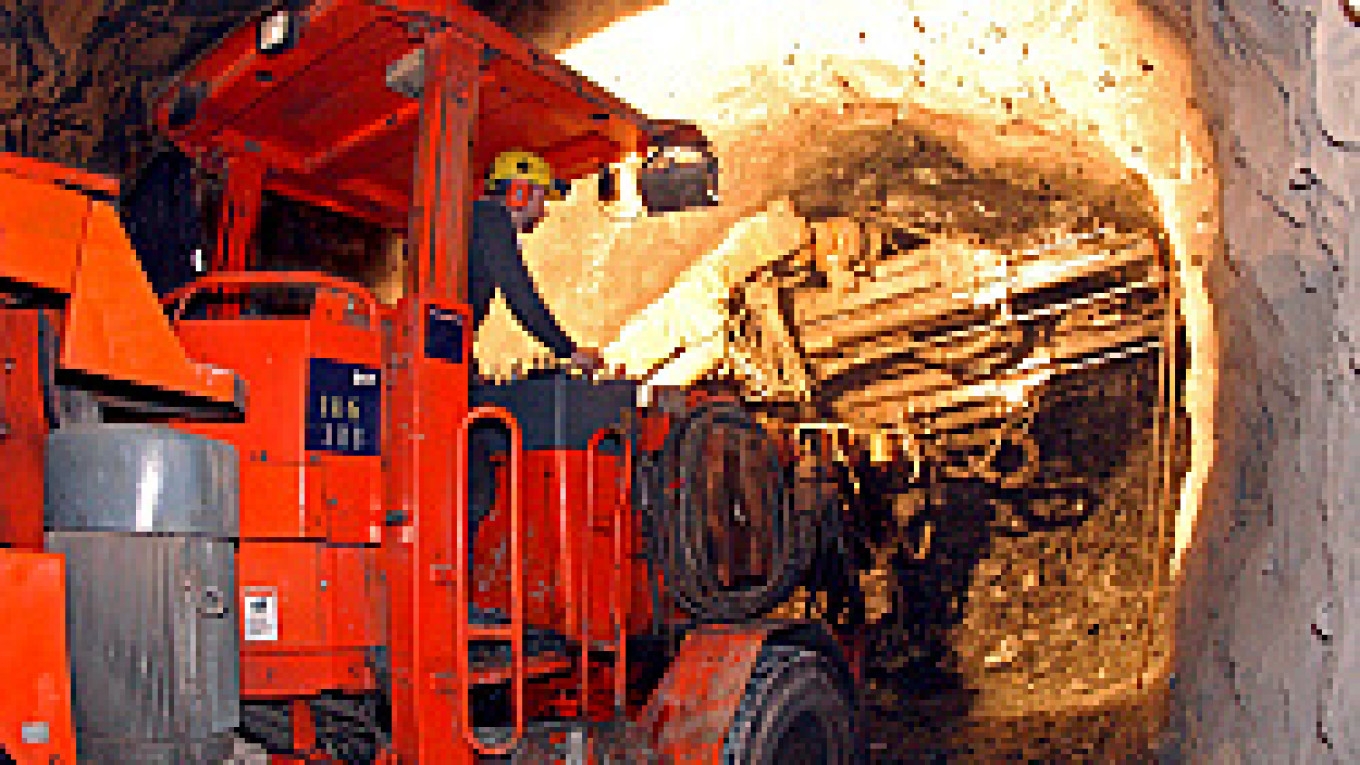This city of 200,000 started life in 1935 as one of Stalin's gulag slave labor camps, which exploited tens of thousands of supposed enemies of the state.
Norilsk's original work force was shipped here by prison barge. The unlucky zeks, as they were called, found themselves 300 kilometers above the Arctic Circle, where temperatures can drop to nearly minus 50 degrees Celsius.
The city is home today to the biggest source of nickel and palladium in the world. A closed city in Soviet days, Norilsk still does not welcome casual visitors: Foreigners who show up uninvited are put on the next plane out.
Norilsk is also one of the most polluted cities on earth. The towering smokestacks of its three nickel and copper smelters pumped 1.8 million tons of sulfur dioxide into the air over the city last year. That is three times the total emissions from Britain for the same period. Dust from the plants is laden with cancer-causing metal particles.
It's hard to tell where the factories end and the city begins, as the smoking pools of industrial water, pylons and steaming pipes that snake around the smelters give way to streets lined with shabby apartment blocks. Buildings sit 1.5 meters off the ground on steel beams because foundations would conduct heat and melt the permafrost, causing them to sink.
Norilsk has a hard time holding on to its youth. Sergei Romashkin, 21, will soon finish his university studies and dreams of working in computer design in Moscow, half a continent away.
"I don't want to spend my whole life here," he said. "There's no greenery in the town, the trees don't grow properly. There aren't trees, just sticks."
Norilsk's chief product is nickel, a key ingredient in stainless steel. To extract it, workers at the Taimyr mine, one of seven belonging to Norilsk Nickel, descend over a kilometer underground into 150 kilometers of tunnels.
Deep beneath the Talnakh mountains, they drill and blast out the ores. Amid the thundering roar of machinery, the rocks are crushed and milled into a powder. The powder is mixed in giant vats, where chemicals are added to bring a gray foam of nickel concentrate to the top, which is then shipped to Norilsk's three nickel and copper smelters.
Workers are dwarfed by the converter furnaces. Ninety-ton cauldrons of molten nickel and copper matte swing overhead. Liquid copper and nickel is poured into panel-shaped molds, then dipped in acid baths and further refined using electrolysis. The rich slime that forms at the bottom of the electrolysis baths is gathered up, and from these dregs, Norilsk reclaims palladium and platinum as well as zinc, cobalt and lead.
Workers get nearly three months off each year due to the harsh conditions, and salaries are good. Wages rose 40 percent in April; now the average salary is $1,500 per month -- three times the national average.
Vladimir Bekker, chief engineer at the Nickel Plant, the oldest of the three factories, says Norilsk is very different now than in the 1930s.
"Every age has its tasks," he said. "Back then it was the gulag, it wasn't about keeping people alive. ... The goal was to produce metal, to win the war, then to rebuild the country after the destruction. It wasn't about people."
Now, he said, the company is trying to address the environmental challenges and the health and safety of its workers.
"Of course we know what still needs to be done. And there isn't enough money for some things despite the factory's riches," he said. "We are taking small steps, but we're not standing still."
A Message from The Moscow Times:
Dear readers,
We are facing unprecedented challenges. Russia's Prosecutor General's Office has designated The Moscow Times as an "undesirable" organization, criminalizing our work and putting our staff at risk of prosecution. This follows our earlier unjust labeling as a "foreign agent."
These actions are direct attempts to silence independent journalism in Russia. The authorities claim our work "discredits the decisions of the Russian leadership." We see things differently: we strive to provide accurate, unbiased reporting on Russia.
We, the journalists of The Moscow Times, refuse to be silenced. But to continue our work, we need your help.
Your support, no matter how small, makes a world of difference. If you can, please support us monthly starting from just $2. It's quick to set up, and every contribution makes a significant impact.
By supporting The Moscow Times, you're defending open, independent journalism in the face of repression. Thank you for standing with us.
Remind me later.


